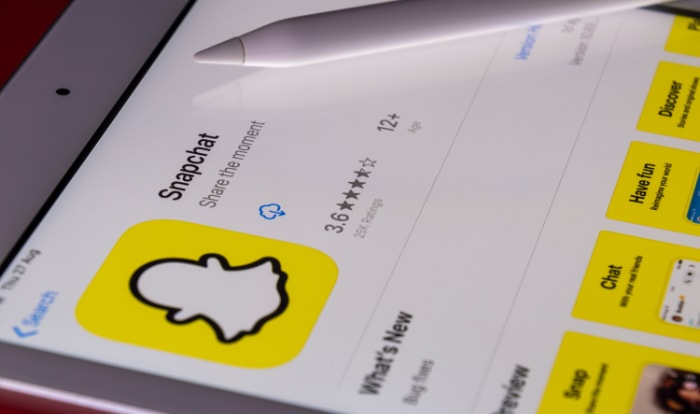Should You Delete Snapchat? Pros and Cons

Snapchat is one of the most popular social media platforms, known for its unique filters, lenses, and ephemeral messaging feature.
However, with privacy concerns and the rise of alternative apps, many users are questioning whether it's time to delete their Snapchat accounts.
Whether you're an avid Snapchat user or just curious about the platform, this post will help you make an informed decision about whether Snapchat is right for you.
Pros of Using Snapchat
There are several potential benefits to using Snapchat, including:
Unique Filters and Lenses
Snapchat is famous for its variety of filters and lenses that can be used to enhance your snaps. From dog ears to rainbow puking, there are filters for every mood and occasion.
These filters and lenses add an element of fun and creativity to your snaps, making Snapchat a standout platform.
Direct Messaging Feature
Snapchat’s direct messaging feature allows users to send snaps and chat with friends in real-time. This feature is convenient and adds a personal touch to your interactions with others.
Ephemeral Nature of Snaps
Snapchat’s ephemeral nature is a unique feature that sets it apart from other social media platforms. Snaps and chats disappear after they have been viewed, giving users the freedom to be themselves without worrying about the content being permanent.
This ephemeral nature encourages users to be more spontaneous and carefree, making the app a fun and lighthearted place to socialize.
Trending Topics
Snapchat has a feature called “Discover” which provides users with access to a variety of popular media outlets and content, including news, sports, and entertainment.
This feature keeps users up-to-date with the latest trends and topics, making Snapchat a great platform for staying informed.
Cons of Using Snapchat
However, there are also potential drawbacks to using Snapchat, including:
Privacy Concerns
Snapchat has faced criticism in the past for its privacy policies and practices. The app collects a significant amount of user data, including location, device information, and contacts.
Additionally, there have been instances of snaps and chats being hacked, which raises serious privacy concerns for users.
Addiction
Snapchat can be addictive, causing users to spend hours on the app and neglect other important responsibilities. The ephemeral nature of snaps and the constant stream of new content can make it difficult for users to step away from the app, leading to excessive usage.
Additionally, the use of Snapchat and other social media platforms has been linked to negative effects on mental health. Some of the cons of using Snapchat in relation to mental health include the following:
Low Self-Esteem
Constantly comparing oneself to others on Snapchat and seeing idealized versions of their lives can lead to feelings of low self-esteem and inadequacy. This can contribute to negative mental health outcomes such as depression and anxiety.
Social Anxiety
Snapchat’s emphasis on appearance and the pressure to present a perfect image can exacerbate social anxiety and feelings of self-consciousness. This can be especially damaging for users who are sensitive to negative feedback or criticism.
Cyberbullying
Snapchat’s direct messaging feature can be a source of cyberbullying. Negative comments, bullying, and harassment can have a significant impact on a person’s mental health, leading to feelings of anxiety, depression, and stress.
FOMO (Fear of Missing Out)
The constant stream of updates and snaps from friends can contribute to feelings of FOMO or the fear of missing out on important events or experiences. This can lead to feelings of anxiety, stress and a negative impact on mental well-being.
Disconnection From Reality
Snapchat’s emphasis on filters and lenses can create a distorted view of reality. This can lead to feelings of disconnection and a distorted perception of one’s own appearance and body image, which can negatively impact mental health.
Overall, while Snapchat can be a fun and entertaining platform, it’s important to be aware of its potential impact on mental health.
Users should take steps to manage their use of the app; one way to do this is by setting limits on the amount of time spent on the app each day and seeking support if they experience negative effects on their mental health.
How to Delete Snapchat
iOS:
- Log in to your account
- Tap on your profile icon in the top left corner of the screen.
- Select the gear icon in the top right corner to access your account information.
- Scroll down to “Account Actions”
- Tap “Delete Account”
- Follow the prompts to complete the account deletion process.
Android:
- Go to https://accounts.snapchat.com/accounts/delete_account
- Type in your Snapchat username and password.
- Click continue.
Snapchat will take 30 days to delete your account. During this time, your account will be deactivated, and your snaps and chat history will no longer be visible to other users.
If you change your mind during the 30-day waiting period, you can reactivate your account by logging back in. However, once the account deletion process is complete, your account cannot be recovered.
Conclusion
Snapchat is a popular social media app that offers users a unique and fun experience. However, there are also a number of cons to using the app, including privacy concerns, addiction, and the impact on mental health.
Users who are considering deleting Snapchat should weigh these pros and cons carefully before making a decision.
If you have decided to delete Snapchat, the process is straightforward and can be completed in just a few steps. However, it is crucial to keep in mind that deleted accounts cannot be restored. Therefore, before removing your account, it may be a good idea to save any important snaps or chats you want to keep.
In the end, whether to use Snapchat or delete it is a personal decision that should be made based on your individual needs and concerns. By considering the pros and cons and taking steps to manage your use of the app, you can make an informed decision that is right for you.


